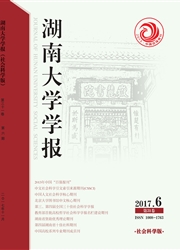

 中文摘要:
中文摘要:
阐述城市化背景下房地产价格影响居民收入差距的财富效应、信贷效应、消费挤出效应和通货膨胀效应。基于全国31个省级行政区的面板数据,构建面板回归模型检验房价对居民收入差距的影响,构建多层线性模型研究房价对居民收入差距的系数受城市化水平因素的影响程度。实证结果表明,无论是否考虑城市化因素,我国房价对居民收入差距的影响都是正向的,并且城市化平均水平的提高削弱了房价对居民收入差距的影响系数。
 英文摘要:
英文摘要:
This study expoundons four kinds of conductive effects, wealth effect, credit effect, crowding out effect and inflation effect; about the real estate prices' effect on residents' income gap under the background of urbanization.Based on the country's panel data of 31 provincial administrative region, this study builds panel regression model to test the conductive effect of house price on the residents' income gap.And multi-layer linear model is used to study how the effect of housing price on residents' income gap changes with the urbanization level of different regions.The empirical results show that the house price has positive effect on the residents' income gap whether considering the urbanization factors. And the improvement of urbanization's average level weakens the coefficient of housing prices for residents' income gap.
 同期刊论文项目
同期刊论文项目
 同项目期刊论文
同项目期刊论文
 期刊信息
期刊信息
